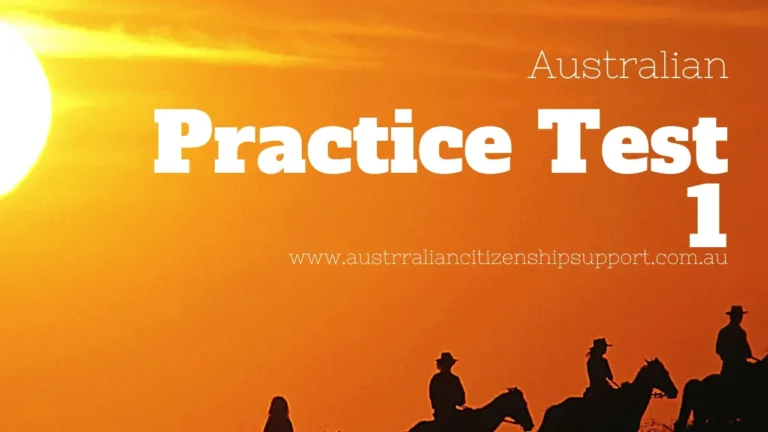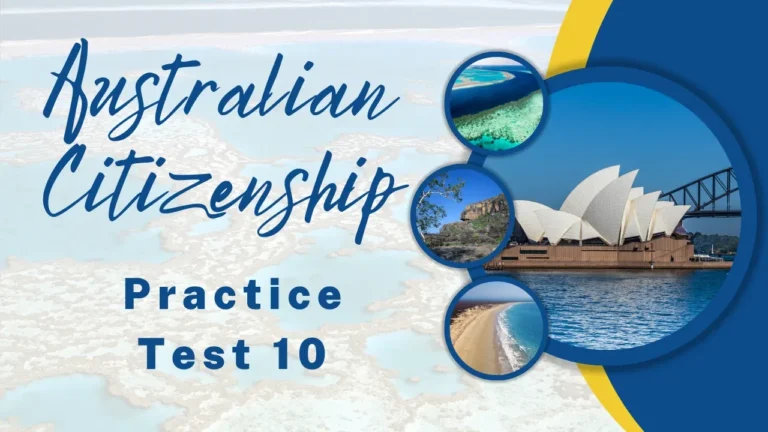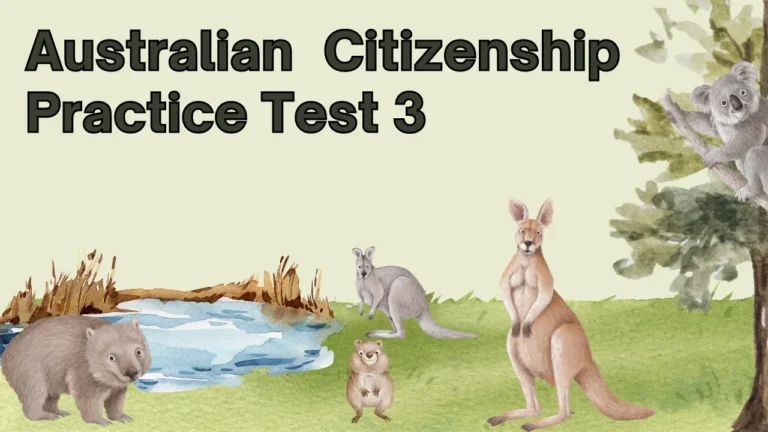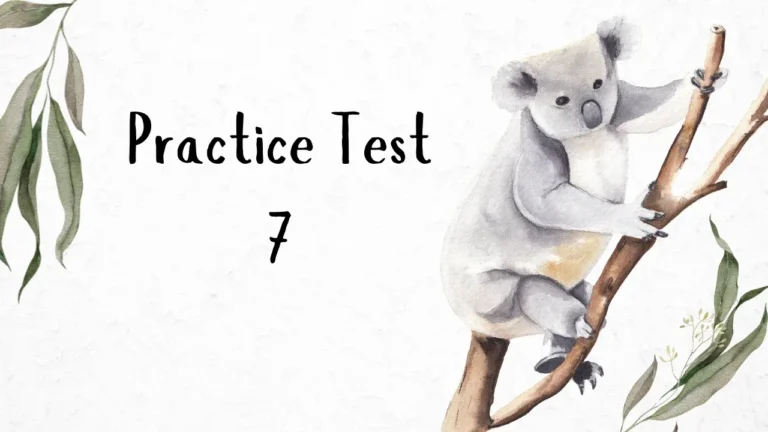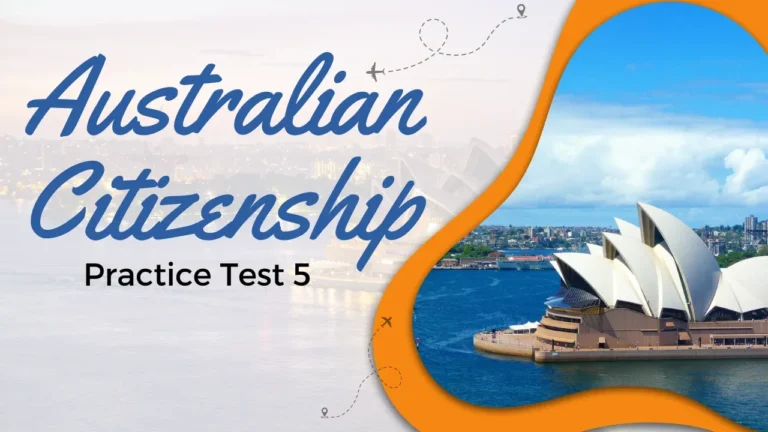The Complete Guide to the Australian Citizenship Test, Ceremony and Interview
It is a significant milestone to become an Australian citizen. The process involves several steps including an Australian Citizenship Test, an interview, and a final citizenship ceremony. These stages are designed to help applicants better understand their rights and obligations as Australian citizens.
What is the Australian Citizenship Test ?
It is mandatory for all applicants to take the Australian Citizenship Test. The test assesses how well you know Australia’s culture, history, government and values.
Test Structure and Content
You must correctly answer 15 out of the 20 questions in order to pass. These questions were based off the resource booklet *Australian Citizenship : Our Common Bond*. The booklet has three sections.
- 1. The section “Australia and its People” contains information on Australia’s geography, history and culture, as well as Indigenous Australians.
- 2. *Australia’s Democratic Beliefs, Rights, and Liberties** This section is devoted to the fundamental principles of Australian democracy, such as the rule of the law, the freedom of expression, and the equality.
- 3. The section on “Government and Law in Australia” explores Australia’s government structure, its Constitution and citizenship responsibilities.
- 4. You must also answer five questions correctly about Australian values to pass.
How to prepare for the test
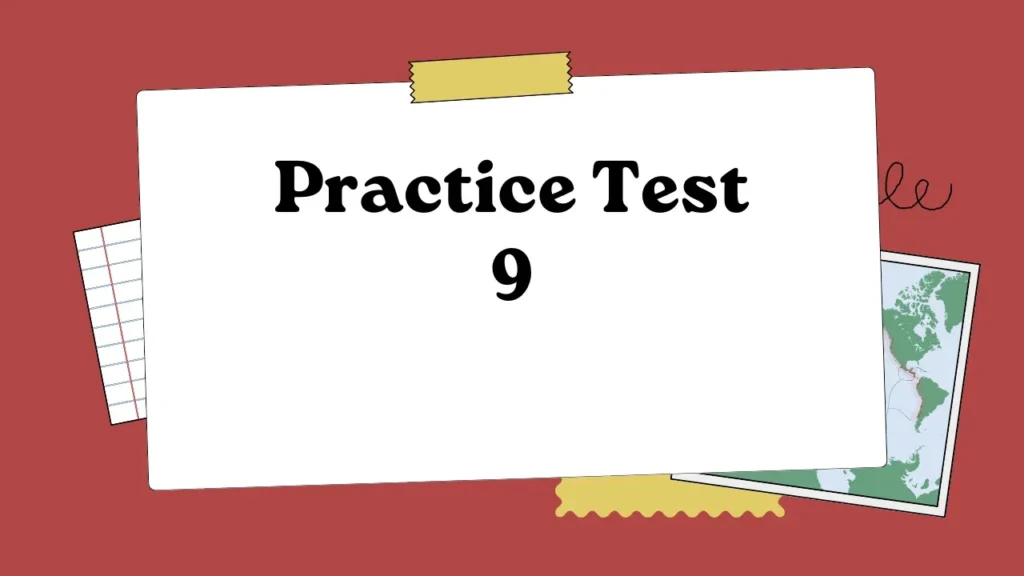
Start by reading the booklet *Our Common Bond*. Be sure you understand important concepts, such as democracy’s importance, rights and responsibilities for Australian citizens and historical events.
These online resources can be very helpful, as well. You can use these tools to get familiar with the format and find out if you need more study.
The Citizenship Interview
*Purpose for the interview**
This interview will allow the Department of Home Affairs (DHA) to confirm your identity and assess your English skills.
What to expect during the interview
The interview is usually held on the day of your citizenship test. However, this can vary depending on where you are and what circumstances apply to each individual. A case officer asks you questions during the interview to determine if you are eligible for Australian citizenship.
The following are the key areas to focus on during an interview:
- Please provide your original identification documents, such as birth certificates, passports, or any other documents that prove who you are. These documents will be checked against your details on the application by the case officer.
- You will be tested on your English language proficiency during the interview. The test may not be designed to challenge you, but it’s important to show that you understand basic questions and can respond.
- Confirmation and clarification of application details**: You may be asked to confirm or clarify certain details in your application such as residency, work history, or any prior applications for citizenship or visas.
Tips for an Interview Success
- -Be Honest & Clear: Answer questions honestly and with clarity. Ask the officer politely to explain or repeat a question if you don’t understand it.
- Bring all required documents. Your interview letter will specify what you need to bring. The process could be delayed if you do not have all the required documents.
- You can improve your English skills by taking a course or practicing your English with friends.
The Australian Citizenship Ceremony
It is the last step to becoming an Australian. The Australian Citizenship Pledge is taken at this formal event, where the successful applicant affirms their loyalty to Australia. The ceremony is the official moment that you become an Australian citizen and receive the associated rights and obligations.
What Happens at the Ceremonies?
Citizenship ceremonies in Australia are usually held by local councils and often on important national holidays such as Australia Day. You can invite your family to the ceremony.
Citizenship ceremonies are composed of:
1. **Welcome speech**: This ceremony is usually opened by an official of the local government or a community leader. The speech could include reflections about the value of citizenship in Australia and values held by Australians.
2. The Citizenship Pledge is the highlight of this ceremony. The pledge will either be repeated as an affirmation or an oath, according to your choice. This pledge represents a promise to support Australian laws and values, and contribute to your community.
3. You will receive your Australian Citizenship Certificate after taking the Pledge. The certificate you receive is an official document which recognizes your citizenship as Australian.
4. *National Anthem and celebrations** The ceremony is usually concluded with a singing of Australia’s national anthem. This may be followed by refreshments, or even a party where the new citizen can join their family and other citizens to celebrate.
Prepare for the ceremony
- Dress appropriately: As the citizenship ceremony is an official event, it’s best to look smart. Most people wear formal clothing or clothes that represent their culture.
- Arrive early at the event venue to give yourself enough time to register and seat. It is important that you arrive on time for the ceremony, as it is an important event.
- Before the ceremony, familiarize yourself with all the terms of the Australian Citizenship Pledge. It will help you to make your pledge more meaningful if you understand its meaning.
- Bring your Invitation: You may be required to show it at the event.
Australian Citizenship Tests, interviews, and ceremonies are all crucial in becoming an Australian Citizen. The Australian Citizenship Test, interview and ceremony are all crucial steps in the process of becoming an Australian citizen.
The preparation is the key to each step of the process. By being prepared for the test and interview and by embracing its significance, the applicants will be able to confidently complete their journey towards becoming Australian Citizens.
It is more than just passing a test and attending a citizenship ceremony. You must commit to values that help make Australia an inclusive, diverse nation. You are not just gaining rights, but you’re also assuming new responsibilities. These will help shape both your own future and that of Australia.

